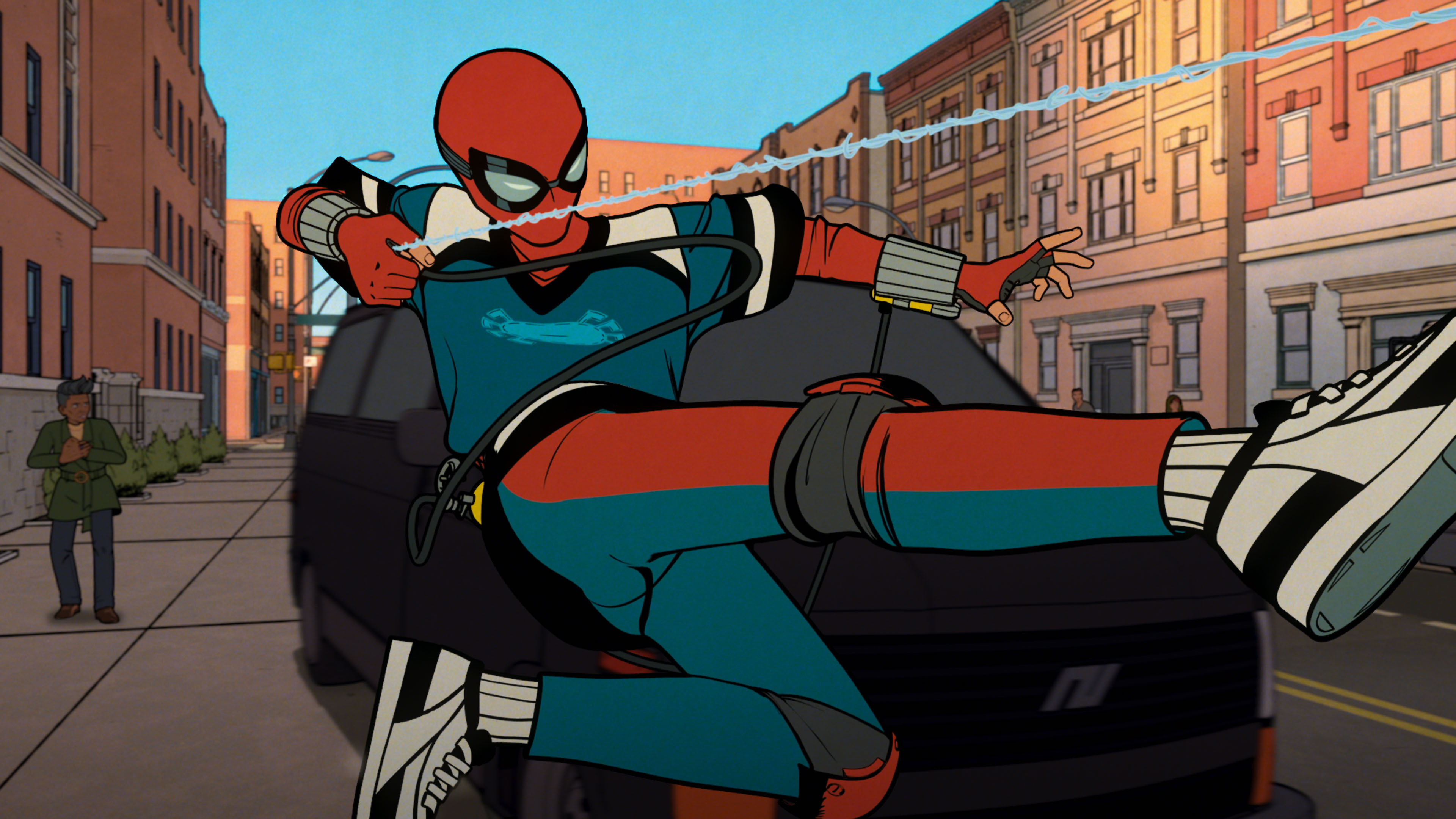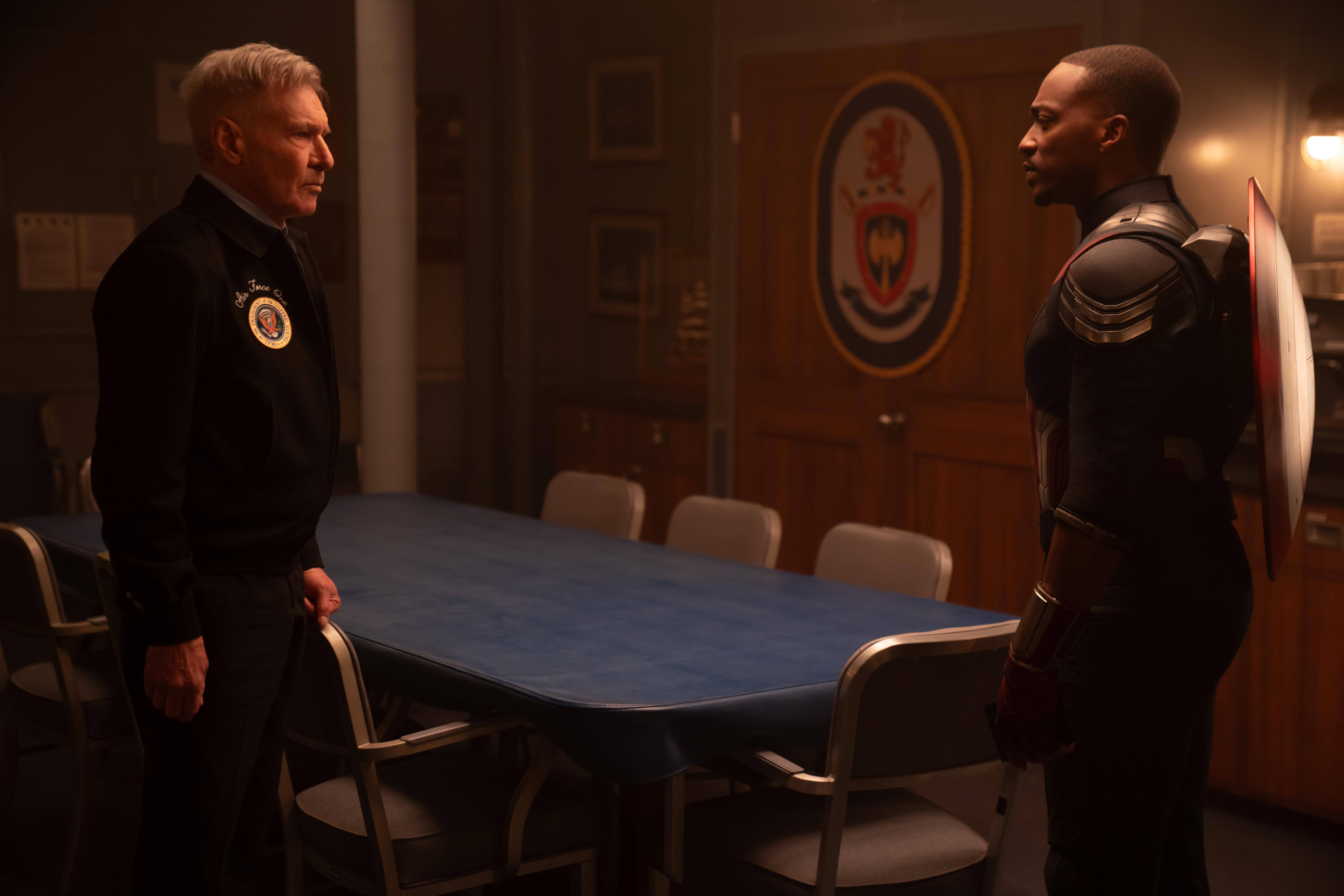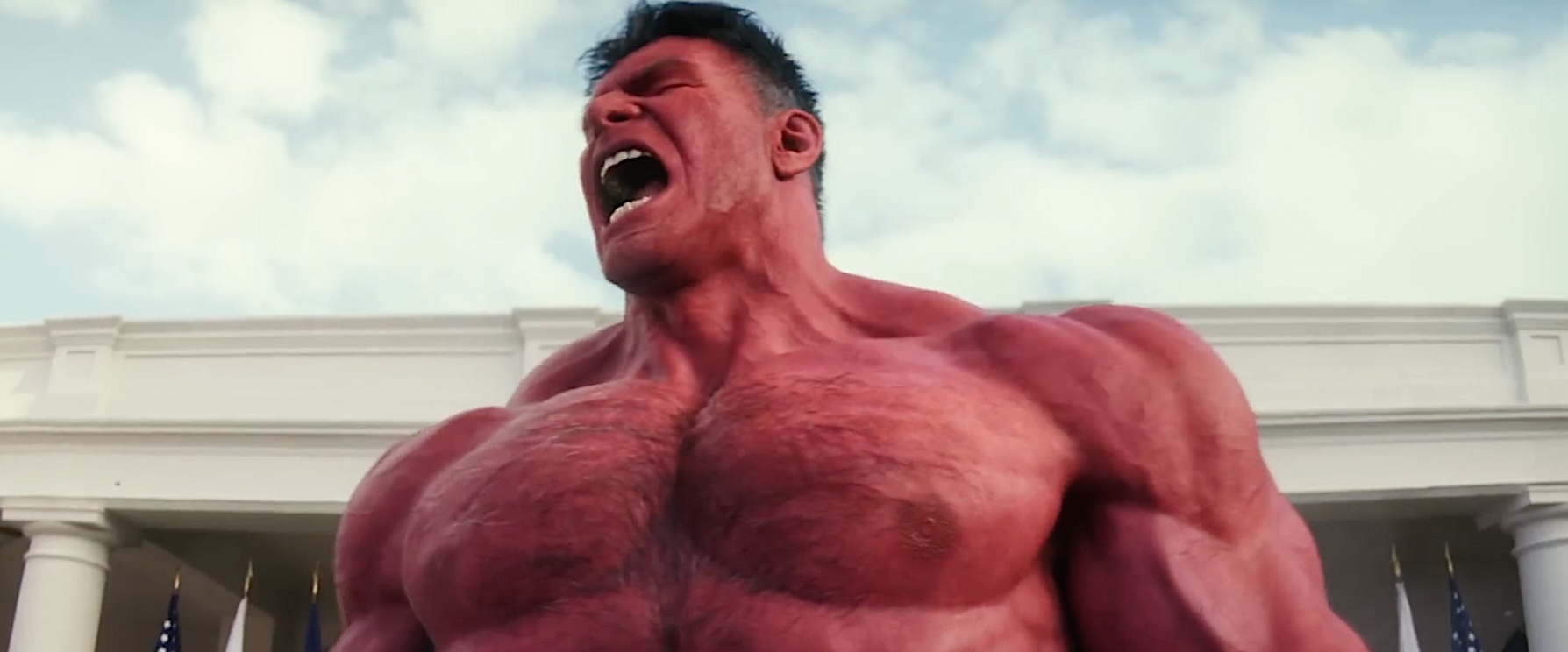The trailer for Dicks: The Musical is a difficult watch: a series of juvenile, faux-edgy jokes a giggling 13-year-old might make. But it turns out that the marketing lacks the context that makes the movie a gloriously silly inside joke, revealed even before its opening frames.
Brief on-screen text cards inform us that the film’s two writer-actors — Aaron Jackson and Josh Sharp — are gay men playing straight men, and are brave for doing so, as the first gay people to write anything, ever. It’s a shot at a particular kind of movie conversation, where the optics of representation are paramount (see also: Disney’s numerous “first” gay characters). That’s just one of Dicks’ running gags, recurring and mutating alongside other jabs at modern cinema culture.
The movie as a whole is a campy, self-reflexive musical satire whose hilarity lies not only in its song and dialogue delivery, but in its filmmaking, courtesy of Borat and Curb Your Enthusiasm director Larry Charles. It’s a laugh riot, with the potential to go down as one of the decade’s smartest and funniest comedies.
:no_upscale()/cdn.vox-cdn.com/uploads/chorus_asset/file/24980011/FIT_15500.jpg)
The plot looks like a riff on the 1998 Lindsay Lohan version of The Parent Trap, a movie remake of a novel adaptation. But it’s really more just Parent Trap lifted wholesale and transposed to Wall Street, with a pair of rich, womanizing, homophobic sales executives, Trevor (Jackson) and Craig (Sharp), discovering they’re identical twins who were separated at birth and plotting to get their divorced parents back together by switching places.
Right from the word go, Dicks: The Musical foists its flimsy artifice on its audience by having Jackson and Sharp play the leads. The duo, who came up with the concept as a 30-minute stage musical at UCB (titled Fucking Identical Twins), look nothing alike, but a campy, glitzed-out narrator (Bowen Yang) briefly interjects to tell us “Fuck off — yes they do!” Oh, and this narrator also happens to be God, so we mere mortals dare not argue.
Dicks takes shots at different kinds of modern movies early on, starting with other A24 movies. A24’s logo is accompanied by grandiose music, and its signature elevated horror threatens to become a tongue-in-cheek thematic inspiration when Trevor and Craig wonder whether their predicament meets the qualifications for abuse and trauma. The film’s New York-set, American Psycho-esque corporate saga is clearly filmed in Los Angeles, with the seams of several sets and stages showing in the margins, while the stock footage it uses of NYC is all distinctly anachronistic.
:no_upscale()/cdn.vox-cdn.com/uploads/chorus_asset/file/24980036/FIT_07122rt2.jpg)
It’s a riff on New York dramas and musicals, just as They Came Together is a riff on New York rom-coms. Dicks and They Came Together are a perfect double feature, as spoofs with sincere emotional throughlines and jokes pushed to head-spinning levels of absurdity.
Stealing a familiar story lets Sharp and Jackson charge through their fleet 86-minute run time with Broadway-style musical numbers galore. They move between plot points snappily, while transforming each one into something unexpectedly strange. When they disguise themselves as each other and meet their respective single parents for the first time — Harris (Nathan Lane) and Evelyn (Megan Mullally) — their expectations of traditional parenthood are not only unmet, they’re subverted to demented degrees, all while circling a satirical vision of modern queer culture.
Lane, for instance, comes out as a gay man to the long-haired Trevor (disguised as his short-haired twin), and he claims familiar, stereotypically gay hallmarks like fancy mimosa brunches and luxurious robes in the earworm original showtune “It’s a Gay Old Life to Be Queer.” But with equal matter-of-factness, he also reveals a pair of monstrous humanoid creatures in a cage in his living room, his “Sewer Boys,” slimy puppets who he feeds mushy luncheon meat. Much to Trevor’s horror, their relationship to Harris rides a bizarre line between romantic and paternalistic. “They’re gay culture,” Harris shrugs.
:no_upscale()/cdn.vox-cdn.com/uploads/chorus_asset/file/24980051/DICKS_Still005.jpg)
Each punchline is stranger than the last. Evelyn, Craig learns, is an eccentric shut-in who uses a wheelchair and sounds a lot like Shirley Henderson as the Harry Potter movie series’ Moaning Myrtle. But each eccentricity reveals new layers that are both raunchy — each trinket and memento around her house has both a name and a sexual purpose — and oddly cosmic. One of her quirks is forgetting how old she is, a recurring stealth joke that ends up having subtle implications verging on science fiction.
But beyond these wacky details, what’s funny about Evelyn is the narrative lens that frames her. The film constantly reminds the audience that it’s a movie about two edgy, homophobic straight dudes, written and played by gay men. So it satirizes the characters’ fears of queerness (via the charming, tactile ugliness of the practical Sewer Boys puppets), and its satirizations take on metatextual layers as well. For example: Evelyn, as a woman written by gay men, becomes the center of macabre fears of (and disgust about) female anatomy, so farcically rendered that it feels like the script is in conversation with the works of Alien designer H.R. Giger.
No matter what joke or swerve is at the center of the film, Lane and Mullally sell each line about their characters’ loneliness, horniness, and personal anxieties with naked emotional sincerity and remarkable vocal range. But the whip-smart filmmaking is what transforms Dicks: The Musical from a stage play into an audacious cinematic satire. Several key jokes are delivered (and in some cases, intentionally deflated) through framing and editing, like the mirroring of Trevor and Craig.
Their status as identical twins within the fiction allows several flourishes to make sense, like the rapid cuts between them during their moment of discovery. Charles rapidly flips the orientation of their two-shots and fades between two identical angles of them, as if the frame were commenting on their similarities. And yet the only reason these flourishes can be recognized in the first place is because the actors playing them don’t look alike.
Both the script and Charles’ direction work constantly on textual and metatextual levels simultaneously. It works both as a story of prototypically straight bros ending up in a queer narrative, and as a self-aware tale of the movie’s creation, with a pair of gay artists stepping into straight roles while poorly disguising their identities, and performing versions of compulsory heterosexuality familiar to anyone who’s ever been closeted. Even the most complicated meta jokes feel rooted in lived experiences.
:no_upscale()/cdn.vox-cdn.com/uploads/chorus_asset/file/24980063/FIT_21337.jpg)
Eventually, these two narratives, about the characters and the actors playing them, collide in audacious ways. But en route to this collision, the camera works to enhance the tension between both throughlines. Craig and Trevor keep telling each other they “want to be brothers, no homo.” That line is a takedown of fragile masculinity, but it also becomes necessary to repeat, since Jackson and Sharp have real sexual chemistry. Any time sparks begin to fly between the actors, the heterosexual characters they’re playing suddenly wince — another form of dialogue between the movie’s various layers of fiction — and Charles’ camera embodies this wincing too, suddenly breaking from classic formalism and becoming hesitant and handheld. “The movie” comes off as a conscious entity, always aware of what it’s doing. And what it’s doing is usually marvelously absurd.
Dicks never picks its targets out of thin air, either. A film this referential toward specific genres, with so many in-jokes about film culture, runs the risk of being too insular. But its punchlines are always layered enough to have at least some amount of broad appeal. Rap star Megan Thee Stallion plays Craig and Trevor’s employer, and she gets her own musical number that satirizes the modern notion of a “girlboss,” both in a way that keeps it in conversation with other movies (most recently, Barbie and Fair Play) while also poking a hole in the very idea of subverting power dynamics by recreating them.
Dicks: The Musical punctures the entire idea of mainstream cinema as a space for overt and verbose preaching that doesn’t actually challenge anything. It does that by pushing easily co-opted images and slogans (like “Love is love”) to riotously transgressive places, including one likely to create a frenzy for any theatrical audience when it becomes a subtitled sing-along.
Charles, Sharp, and Jackson double and triple down on every joke, until eventually, every scene becomes a preposterous song and dance simultaneously about the characters’ palpable longing, and about the movie’s own making. From its trailer, Dicks: The Musical looks like it’ll just be a string of in-jokes. But the movie itself works overtime to invite viewers in on those jokes — to join each and every one on the inside.
Dicks: The Musical opens in limited release on Oct. 6 and expands to wide release on Oct. 20.








